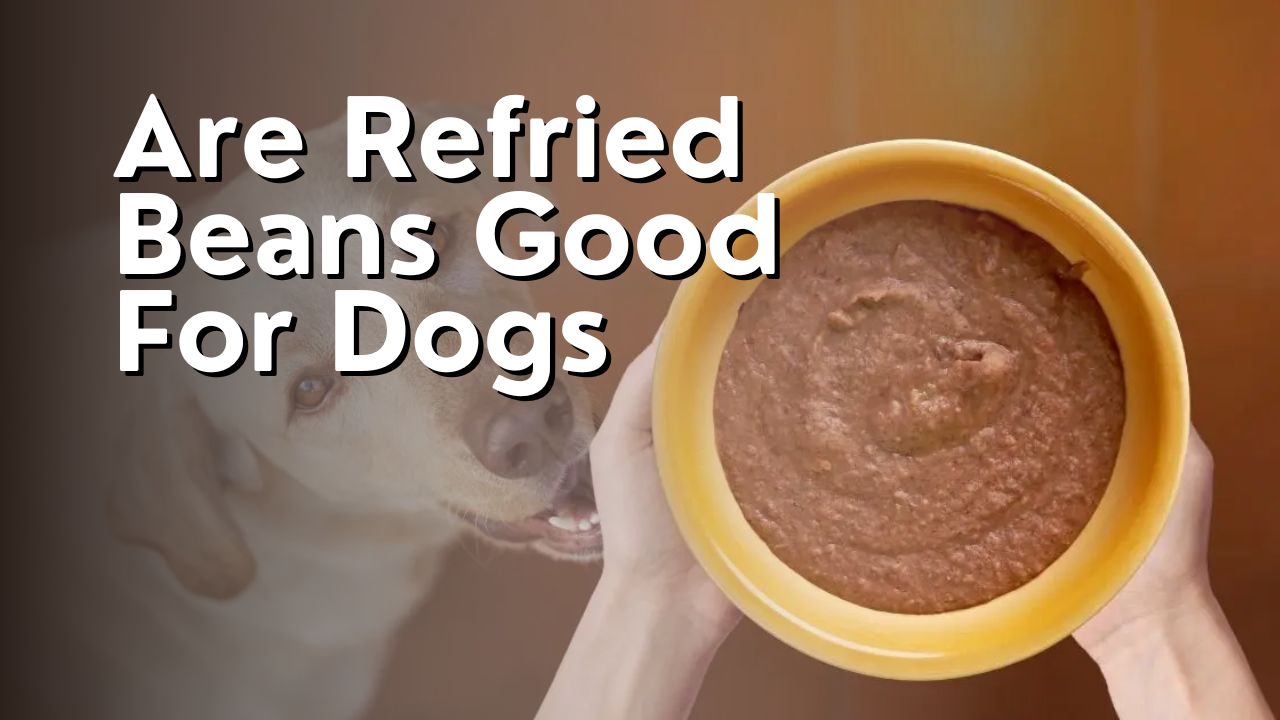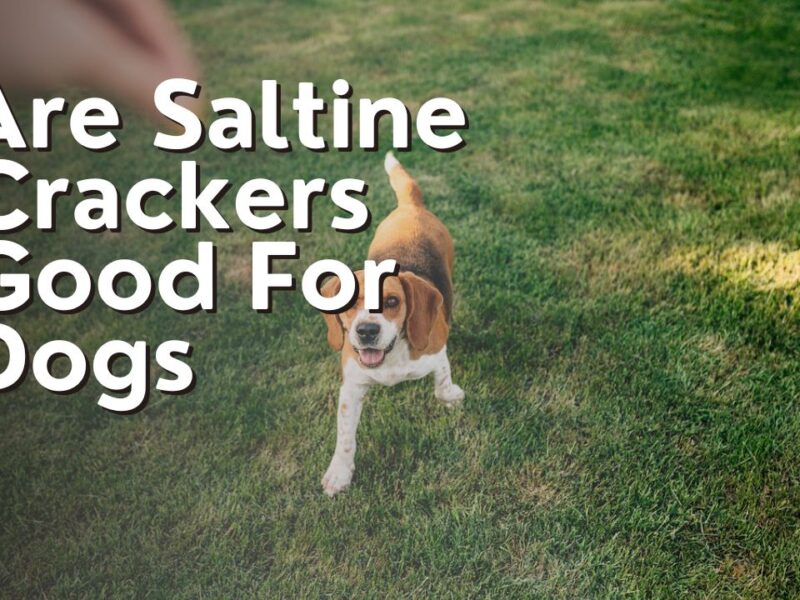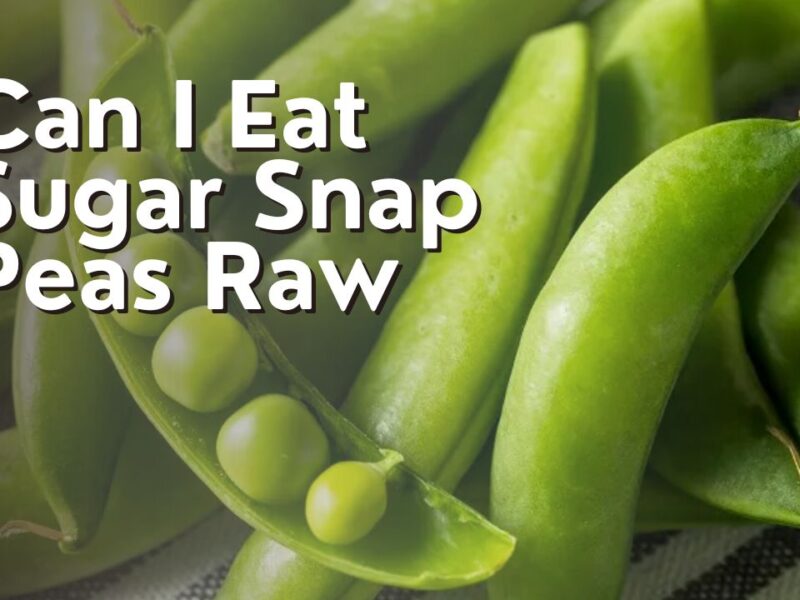Hey there! So, you’re probably wondering if refried beans are good for dogs, right? Well, I’m here to give you the lowdown.
As a dog owner myself, I understand the importance of providing a balanced and nutritious diet for our furry friends. That being said, it’s essential to know what foods are safe and beneficial for them.
In this article, we’ll explore the nutritional value of refried beans for dogs and discuss any potential dangers they may pose. Additionally, we’ll look at alternative options for including beans in a dog’s diet and consider important factors to keep in mind when feeding refried beans to our four-legged companions.
After all, the overall well-being of our dogs is of utmost importance, and their diet plays a significant role in that. So, let’s dive in and find out if refried beans are a good choice for our canine pals!
Nutritional Value of Refried Beans for Dogs
Refried beans can be a tasty addition to your dog’s diet, but it’s important to understand their nutritional value before feeding them to your furry friend. While refried beans may seem like a healthy choice, they can actually be high in sodium and fat. This can be problematic for dogs, as excessive sodium intake can lead to dehydration and kidney issues, while too much fat can contribute to obesity and pancreatitis.
On the positive side, refried beans are a good source of protein and fiber, which can be beneficial for dogs. Protein is essential for muscle growth and repair, while fiber aids in digestion and helps to regulate bowel movements. However, it’s important to note that dogs have different nutritional needs than humans, so moderation is key.
When it comes to feeding your dog refried beans, it’s best to do so in moderation and as an occasional treat. It’s also important to choose low-sodium and low-fat options, if available. Additionally, it’s always a good idea to consult with your veterinarian before making any significant changes to your dog’s diet. They can provide guidance based on your dog’s specific needs and ensure that they are getting a balanced and nutritious diet.
So, while refried beans can be enjoyed by dogs, it’s important to consider their nutritional value and feed them in moderation to keep them healthy and happy.

Potential Dangers of Feeding Refried Beans to Dogs
Be cautious when feeding your furry friend any leftovers, as there are potential dangers associated with sharing your meal with them. While refried beans may seem like a tasty treat for dogs, it’s important to consider the potential risks before giving them to your pet.
One potential danger of feeding refried beans to dogs is the high sodium content. Most refried beans are loaded with salt, which can be harmful to dogs, especially those with heart or kidney issues. Consuming excessive amounts of sodium can lead to dehydration, increased thirst, and even sodium ion poisoning in severe cases.
Another concern is the use of spices and seasonings in refried beans. Some dogs may have sensitive stomachs or allergies to certain spices, such as garlic or onion, which are commonly found in refried beans. These ingredients can cause digestive upset, including vomiting or diarrhea.
Additionally, refried beans often contain added fats and oils, which can be problematic for dogs. High-fat foods can lead to pancreatitis, a painful and potentially life-threatening condition in dogs.
In conclusion, while refried beans may be a tasty treat for humans, they can pose potential dangers to dogs. It’s best to avoid feeding them to your furry friend and opt for dog-friendly alternatives instead. Always consult with your veterinarian before introducing any new foods into your dog’s diet.
Alternative Options for Including Beans in a Dog’s Diet
When it comes to including beans in a dog’s diet, there are several alternative options to consider.
One option is to feed cooked and plain beans to your dog, which can provide them with a good source of protein and fiber.
Another option is to create homemade bean mixtures for your dog, combining different types of beans with other dog-friendly ingredients.
Lastly, you can also opt for commercially prepared dog food that includes beans as one of the main ingredients, ensuring your dog gets the nutritional benefits without the hassle of preparing it yourself.
Cooked and Plain Beans
Cooked beans are a healthy and tasty addition to your dog’s diet. They provide a good source of protein, fiber, and essential nutrients. I often include cooked beans in my dog’s meals to add variety and nutrition. Some of the best beans to feed your dog include black beans, kidney beans, and pinto beans. These beans are packed with vitamins and minerals that promote a healthy immune system and aid in digestion. However, it’s important to note that dogs should only consume plain and cooked beans. Avoid feeding them beans that are seasoned or cooked with added ingredients like onions, garlic, or spices as they can be harmful to your furry friend. Remember to introduce beans gradually into your dog’s diet and monitor for any digestive issues.
| Benefit of Cooked Beans for Dogs | Emotion Evoked |
|---|---|
| High in protein | Excitement |
| Good source of fiber | Contentment |
| Promote a healthy immune system | Happiness |
| Aid in digestion | Satisfaction |
| Nutritious addition to meals | Peace of mind |
Homemade Bean Mixtures
Whipping up your own bean medley at home can be a fun and easy way to give your furry friend a nutritious and tasty treat!
Homemade bean mixtures can be a great option for dogs, as long as you stick to safe ingredients and avoid any seasonings or additives that may be harmful to them.
Start by cooking a variety of beans, such as black beans, kidney beans, and pinto beans, until they are soft and easy to mash.
Then, simply mash them together with a fork or blend them in a food processor until you achieve a smooth consistency.
You can serve this homemade bean mixture as a standalone treat or mix it with your dog’s regular food to add some extra flavor and nutrition.
Just remember to introduce new foods gradually and monitor your dog for any adverse reactions.
Commercially Prepared Dog Food with Beans
To give your furry friend a delicious and nutritious meal, try out commercially prepared dog food that includes a variety of wholesome beans blended in for added flavor and health benefits. These specially formulated dog foods are designed to provide a balanced diet for your pup, while also incorporating the goodness of beans. Here are two reasons why commercially prepared dog food with beans is a great choice:
Improved Digestion: Beans are a great source of fiber, which aids in digestion and can help prevent constipation in dogs. Plus, the added fiber can promote a healthy gut and reduce the risk of gastrointestinal issues.
Increased Energy: Beans are packed with protein and complex carbohydrates, providing your dog with a sustainable source of energy. This can be particularly beneficial for active dogs or those with high energy levels.
So, next time you’re looking for a nutritious and convenient option for your furry friend, consider trying out commercially prepared dog food with beans. Your pup will be wagging their tail in delight!
Considerations for Feeding Refried Beans to Dogs
If you’re thinking about giving your furry friend refried beans, you need to be aware of some important considerations. While refried beans can be a tasty treat for us humans, they may not be the best option for our dogs. Dogs have different dietary needs and what may be good for us can sometimes be harmful to them.
First and foremost, it’s important to note that refried beans are usually prepared with added ingredients such as salt, spices, and oils. These additives can be harmful to dogs, especially in large amounts. Too much salt can lead to dehydration and kidney problems, while certain spices and oils can cause digestive issues and pancreatitis in dogs.
Additionally, refried beans are high in carbohydrates, which can be difficult for dogs to digest. Dogs are primarily carnivores and their bodies are not designed to efficiently break down and utilize carbohydrates. Feeding them a diet high in carbs can lead to weight gain, digestive problems, and even diabetes.
To help you visualize the potential risks of feeding refried beans to your dog, here is a table that highlights some of the possible consequences:
| Consequence | Emotional Response |
|---|---|
| Dehydration | Concern |
| Digestive issues | Worry |
| Pancreatitis | Fear |
| Weight gain | Disappointment |
| Diabetes | Distress |
Considering these factors, it’s best to consult with your veterinarian before introducing refried beans or any human food into your dog’s diet. They can provide guidance on appropriate treats and ensure your furry friend stays happy and healthy.

Overall Well-being of Dogs and Their Diet
Now, let’s shift our focus to the overall well-being of our furry friends and how their diet plays a crucial role in it. As a dog owner, it’s important for me to ensure that my canine companion receives the right nutrition to maintain a healthy and happy life.
A well-balanced diet for dogs typically consists of high-quality protein, healthy fats, carbohydrates, vitamins, and minerals. These essential nutrients promote optimal growth, maintain a strong immune system, and support their overall health. However, it’s vital to note that not all human foods are suitable for dogs, including refried beans.
Refried beans, although enjoyed by many of us, may not be the best choice for our furry friends. While they contain protein and fiber, they are often seasoned with ingredients like garlic and onion, which can be toxic to dogs. Additionally, the high sodium content in refried beans can lead to issues such as dehydration and electrolyte imbalances in dogs.
To ensure the well-being of our dogs, it’s best to stick to a balanced and vet-approved diet that meets their specific nutritional needs. This way, we can provide them with the necessary nutrients while keeping them safe and healthy.
Frequently Asked Questions
Can I feed my dog refried beans as a meal replacement?
Yes, you can feed your dog refried beans as a meal replacement. However, it’s important to remember that dogs have different nutritional needs than humans, so consult with your vet to ensure a balanced diet.
Are there any specific breeds of dogs that should not consume refried beans?
There aren’t specific breeds of dogs that should avoid refried beans. However, it’s important to note that some dogs may have trouble digesting beans, which can lead to digestive issues like gas or diarrhea.
Can I add seasonings or spices to refried beans for my dog’s diet?
I wouldn’t recommend adding seasonings or spices to refried beans for my dog’s diet. It’s best to stick to plain, unseasoned beans to avoid any potential digestive issues or allergic reactions.
How often should I include refried beans in my dog’s diet?
I should include refried beans in my dog’s diet occasionally. It’s important to provide a balanced and varied diet, so I can mix refried beans with other dog-friendly foods to ensure my pet gets the nutrients they need.
Are there any potential health benefits of feeding refried beans to dogs?
There are potential health benefits of feeding refried beans to dogs, such as being a good source of protein and fiber. However, it’s important to consult with a veterinarian to ensure it’s suitable for your dog’s specific dietary needs.
Conclusion
In conclusion, I believe that while refried beans can provide some nutritional benefits for dogs, there are also potential dangers to consider.
It is important to be mindful of the high sodium and fat content in refried beans, as well as the potential for causing gastrointestinal upset.
There are alternative options for including beans in a dog’s diet, such as cooked and mashed beans without added seasonings.
Ultimately, it is crucial to prioritize the overall well-being of our furry friends when making decisions about their diet.


